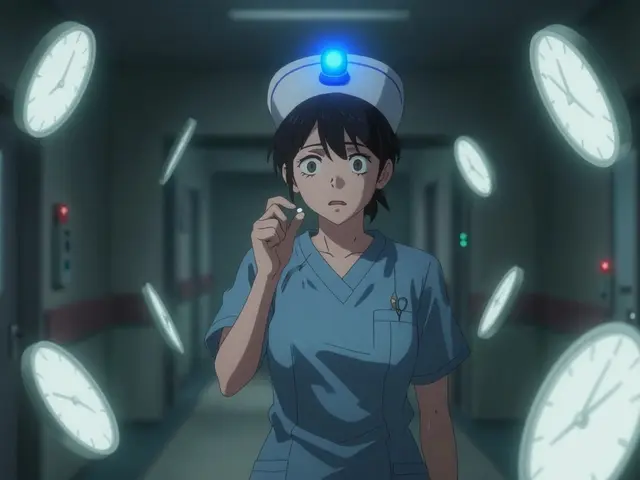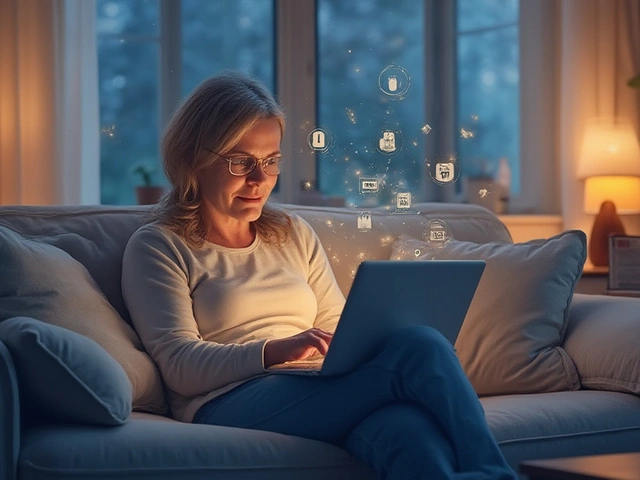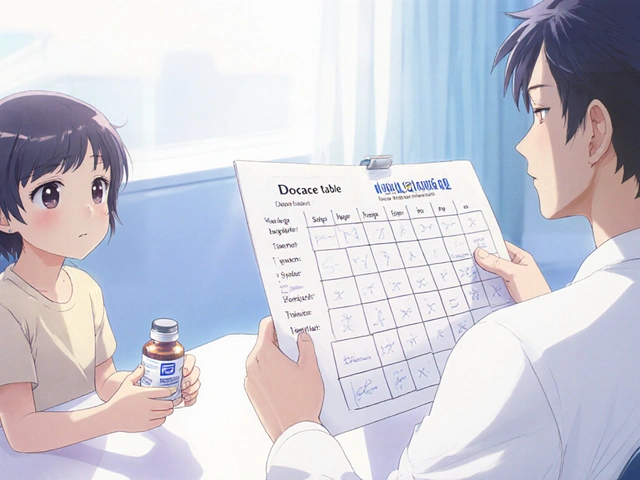In a significant move that highlights the growing scrutiny over patent listings in the pharmaceutical industry, GlaxoSmithKline (GSK), a leading global healthcare company, has decided to withdraw its patent listings for three of its respiratory drugs – Advair, Flovent, and Ventolin – from the US Food and Drug Administration's (FDA) Orange Book. The decision, taken in December 2023, came on the heels of a warning letter issued by the Federal Trade Commission (FTC), which pointed out concerns over the validity and inventiveness of certain patent listings.
The FDA's Orange Book, officially known as the 'Approved Drug Products with Therapeutic Equivalence Evaluations,' is a critical resource in the pharmaceutical industry. It catalogues patents that are associated with FDA-approved drugs, providing vital information on patent protections and exclusivities. The listings in the Orange Book play a crucial role in the generic drug approval process, as they inform generic manufacturers about the patent status of brand-name drugs, potentially delaying the entry of generic versions into the market.
The action by GSK underscores a broader initiative by the FTC to ensure that the patent listings within the Orange Book genuinely reflect innovative advancements in drug development. The FTC's recent activities have brought to light concerns that some pharmaceutical companies may be strategically listing patents that are deemed non-inventive or even invalid, with the aim of extending their market exclusivity far beyond what is justified by their innovations. This practice, often referred to as 'patent thickets,' can significantly impede the entry of more affordable generic drugs into the market, impacting healthcare costs and accessibility for consumers.
The warning letter from the FTC to GSK was not an isolated incident. In an unprecedented campaign to uphold the integrity of the patent system, the FTC dispatched warning letters to a total of ten pharmaceutical entities, including an Amneal Pharmaceuticals subsidiary. These letters are a clear indication of the FTC's commitment to challenging questionable patent listings that may hinder competition and innovation within the pharmaceutical sector.
GlaxoSmithKline's decision to withdraw its patents from the Orange Book came as a response to the FTC's warnings and reflects the company's adherence to regulatory expectations. By removing the patent listings for Advair, Flovent, and Ventolin, GSK not only aligns itself with the regulatory landscape but also takes a step that could facilitate the entrance of generic versions of these drugs, potentially leading to enhanced competition and lower prices for consumers.
The move by GSK and similar actions taken by other pharmaceutical firms in response to regulatory scrutiny are indicative of a significant shift in the industry. As the regulatory environment evolves, pharmaceutical companies are increasingly required to balance their pursuit of innovation and market exclusivity with the need to comply with efforts aimed at ensuring fair competition and accessibility to essential medications. The recent actions taken by the FTC and the response from the industry may serve as a turning point, potentially leading to more strategic and transparent patent practices in the future.






Reviews
Finally, someone in Big Pharma is doing the right thing. This isn't charity-it's accountability. The Orange Book was never meant to be a legal loophole factory. Generic drugs save lives and money. If your patent doesn't add real innovation, it shouldn't block access.
Let's hope this sets a precedent.
FTC is just another government agency trying to kill innovation with red tape. These patents took years and billions to develop. Now they want to hand them to China and India for pennies. Wake up people this is economic warfare.
Let me be clear this is not about patents this is about Western hegemony in pharmaceuticals. India has been producing life-saving generics for decades while the West hoarded patents like medieval lords. GSK's move is not moral it is inevitable. The Global South has woken up. We do not need your overpriced inhalers wrapped in legal fiction. We need medicine. And we will make it cheaper better faster. Your patents were always a colonial relic.
One cannot help but observe the performative nature of this withdrawal. GSK has not abandoned its intellectual property-it has merely relocated its strategic leverage. The real power lies not in the Orange Book but in the complex regulatory entanglements surrounding REMS programs, formulation trade secrets, and distribution monopolies. This is a chess move not a concession.
Oh so now we're supposed to applaud them for doing what they should've done in 2010? This is the same company that spent $200M lobbying to extend patents on Advair. Now they're playing saint because the FTC is breathing down their neck? Pathetic. Corporate virtue signaling at its finest.
People forget that these drugs saved millions of asthma patients over the last 20 years. The patents weren't perfect but they funded R&D for next-gen treatments. Now that they're gone, who's gonna pay for the next breakthrough? The answer isn't more generics-it's smarter policy.
Wait wait wait-so you're telling me that after 20 years of charging $300 for an inhaler they're finally like 'oh wait we didn't invent anything new'? That's not a win that's a confession. My cousin couldn't afford this for years. Now he's breathing easy. This is the first good thing that's happened to healthcare in a decade.
While I applaud the withdrawal, I must emphasize that the structural imbalance remains: the U.S. FDA, despite its regulatory authority, still operates within a capitalist framework that incentivizes delay-not access. True reform requires dismantling the entire patent-to-market pipeline, not just scrubbing the Orange Book. Let us not mistake symptom relief for cure.
My dad used Advair for 15 years. He finally got a generic last year and his copay dropped from $120 to $12. He cried. Not because he was sad-because he could breathe again without choosing between groceries and meds. This matters. Real people. Real lives.
This is beautiful. India and the U.S. finally on the same page-not for politics, not for profit-but for people. When medicine becomes a right not a privilege, we all win. Thank you GSK for listening. Not because you had to-but because you chose to.
While the withdrawal of patent listings is a commendable regulatory compliance measure, it is imperative that stakeholders ensure that subsequent generic market entry is accompanied by robust quality assurance protocols. Without standardized bioequivalence testing, patient safety may be inadvertently compromised. Therefore, vigilance must persist beyond the administrative act.
This is the kind of news that gives me hope 🌟 Thank you to everyone who fought for this-patients, advocates, regulators. You made a difference. 💙
Let's be honest-this isn't about ethics. It's about the FTC threatening to audit GSK's entire patent portfolio. The company realized their non-inventive patents were legally indefensible and chose to cut their losses before a court ruling. This is corporate damage control, not moral awakening. Don't be fooled.
patents are just tools and tools can be used to control or to liberate this move is a shift from control to liberation maybe the system is learning maybe not but at least its moving
I’ve been waiting for this for years. I work in a clinic and I’ve seen patients skip doses because they can’t afford the brand. This is huge. Let’s keep pushing for more.
So what happens now? Do we just let generics in and hope for the best? Or is this the start of something bigger? Either way I'm not mad.
Everyone is acting like this is some moral victory. It's not. The FTC forced their hand. GSK still owns the formulations. They still control the supply chain. The only thing that changed is a list in a government database. Don't celebrate. Stay vigilant.
From India to America, this is how change happens-not with protests but with policy. My uncle in Delhi gets his inhaler for $2 now. My cousin in Chicago gets hers for $10. Same medicine. Same breath. Different price. That’s justice.
Just to clarify-this doesn't mean generics are available tomorrow. The FDA still has to review each one. But yeah, the path is clear now. No more legal roadblocks. That's the real win.